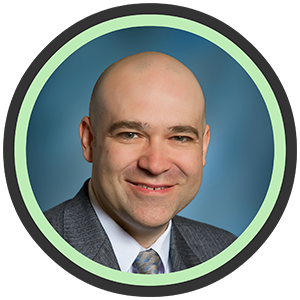- News
- //
- ECPG EXTRA! Gambling and Gaming During a Pandemic
ECPG EXTRA! Gambling and Gaming During a Pandemic

Thanks to the great participation at our most recent ECPG LIVE Event Gambling and Gaming During a Pandemic this month. So many great questions – we wanted to ask our Experts to share their perspectives in this new ECPG EXTRA!
Q: The Recovery Community has shared that the homeless population often doesn’t have the ability to connect through telehealth.

A: ( Ty Lostutter, Ph.D., ECPG Board President ) This is a great question and I don’t have a real-time answer yet, but I think we as community members should think about how to solve this problem. We might help meet the need by giving people experiencing homelessness access to telehealth – this may not require them to own the equipment per se. Are the cost-effective ways we could provide free smartphones and free hotspots to help them keep their appointments?
More likely we will see, shelters or other settings that could have a “telehealth room,” which would allow the clients in the shelters to have appointments with doctors in the shelters or we could create drop-in space at food-banks or other environments, which would allow the person suffering from homelessness to have telehealth appointments with counselors. There are currently some grants trying to research this problem hoping to find the best methods for those experiencing homelessness to use the technology to make their virtual appointments.
Q: The COVID-19 Pandemic seemed to come upon us so quickly – was there time to create any research opportunities? Does Social Isolation make it harder to do research? What would we most want to study if we could?”

A: (Ty Lostutter, Ph.D., ECPG Board President) Social isolation may impact gambling research and may have impacted some ongoing studies if those studies required any kind of social contact. The pandemic did make it harder to conduct in-person research or study environments such as casinos and other gambling venues that have closed because of possible infection potential. Thus, we expect the pandemic may have changed behavioral patterns and we expected that maybe this change in behaviors may have a lasting effect for a significant amount of time given the infectious nature of this particular virus.
People may or may not go back to in-person environments for some time for their fear of the virus. Thus, some research questions could be how did the pandemic change rates of problem gambling behavior or did Individuals with gambling disorder may find other ways to gamble online. Therefore, does a change in gambling environment (in-person to online) increase their gambling, decrease their gambling, or stay the same. If so, why? How does it affect other behaviors, such as alcohol use, depression, coping, exercise? We don’t know, but that is why we research.
The beauty of research is asking the questions, developing a hypothesis, developing a methodology, and implementation of the methodology to collect data, analyze the data and dissemination of your findings with the consent of your research participants in the hope to benefit mankind. It can be a truly rewarding endeavor.
Q: A similar trend this week flagged by US-facing online social poker room Global Poker, which revealed a 43% increase in the use of online poker sites in the United States since social distancing and lockdowns took effect, including a 255% increase in first-time poker players. Global Poker said that, prior to lockdown, around 40 million Americans, or 6.8% of the total adult population, enjoyed poker either live, online or with friends on a regular basis. Is this trend likely to last?

A: (Julie Hynes, MA, CPS, Executive Director, OCPG) This is an interesting stat. I’m not sure how much stock to place in one operator’s data, but this information along with a lot of other player data tell us a bigger story: people who want to gamble will find ways to do it. The big question is why there’s such an increase. If someone is playing online or in person with friends, and/or without experiencing harm, it’s probably a fine way to entertain oneself and enjoy competition and connection during the pandemic.
Questions to ask on an individual level might be: is the poker playing being used to fill a hole from other forms of gambling one can’t access due to the pandemic? To try and chase financial losses due to COVID? As a coping mechanism to “escape” the stress of home life or other stressors caused by the pandemic? Is the individual spending more than intended or preoccupied more and more with poker? These are a few of the questions that need to be addressed on an individual basis.
We know that online forms of gambling tend to have more risk due to several factors, including speed of play, isolation, anonymity, the mechanisms within the online platforms that can increase dopamine more than analog forms of play, and less connection to monetary value. So, in general, playing live poker would be a safer “bet.”
The good news is that, if a person feels like they might be struggling or getting into problems, there’s hope and help – and it’s still available and accessible.
